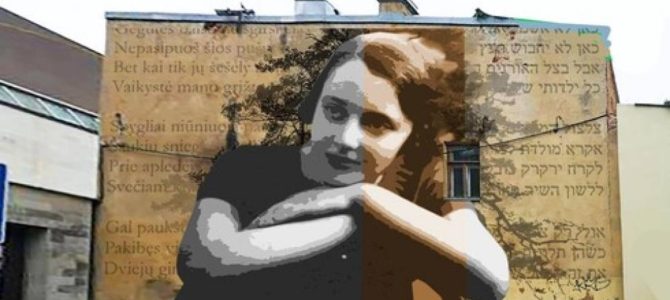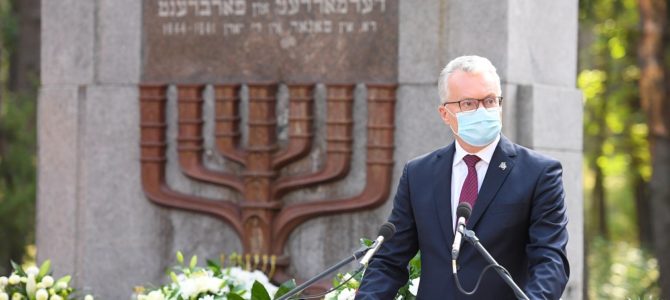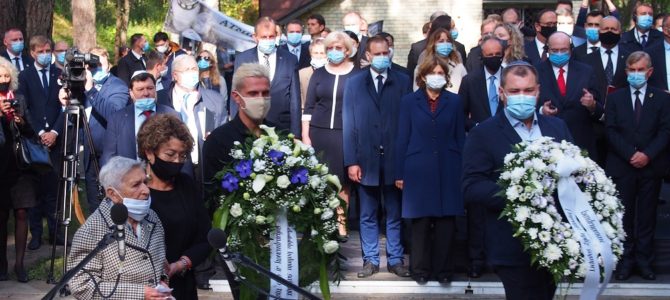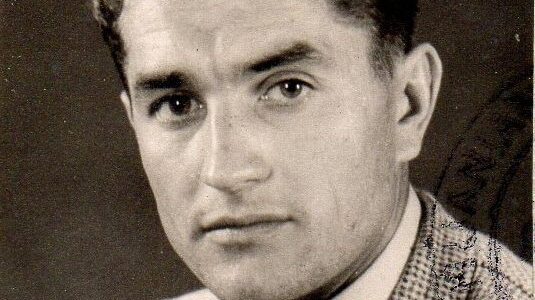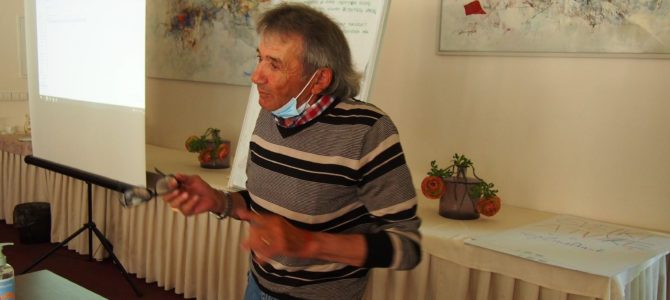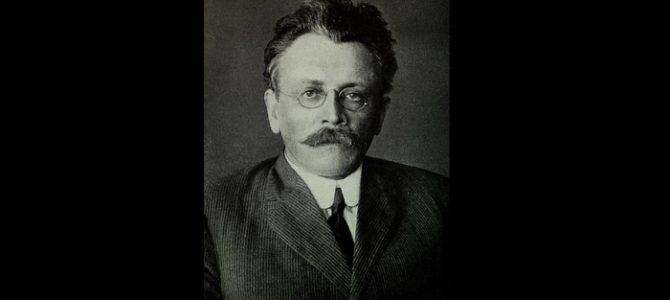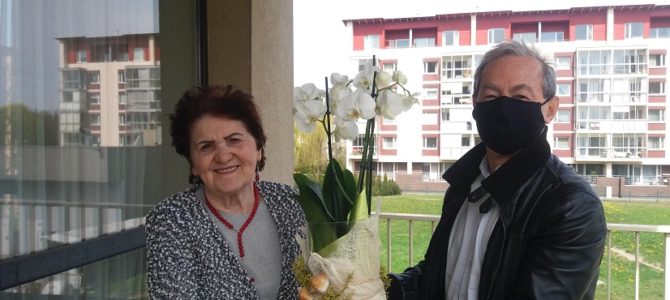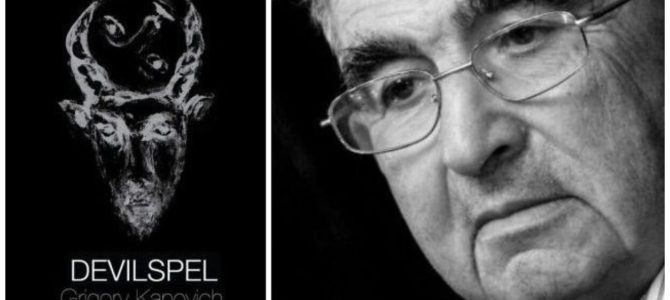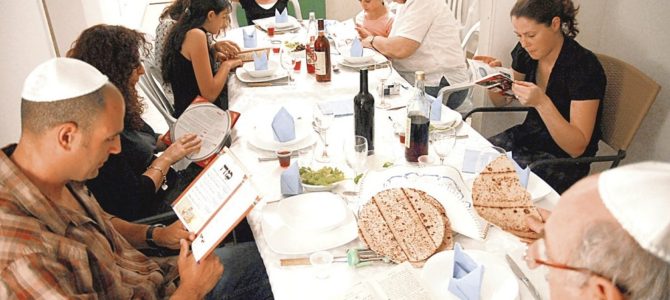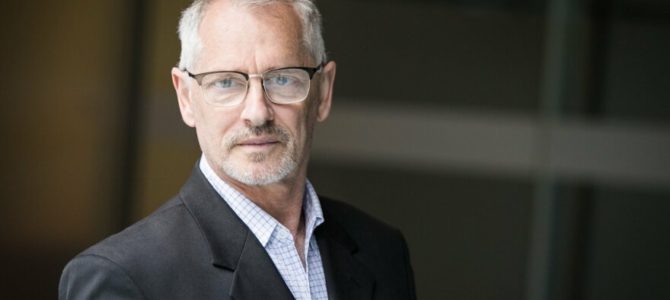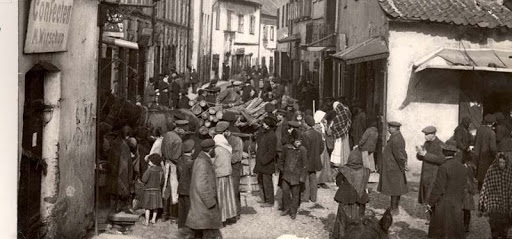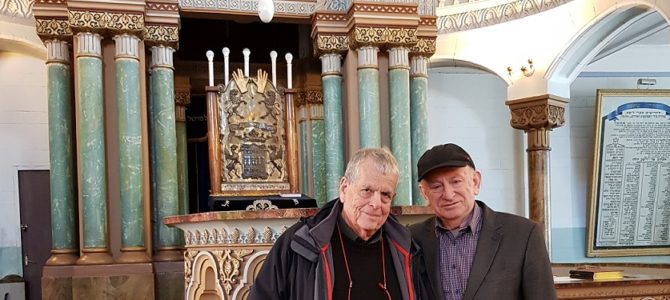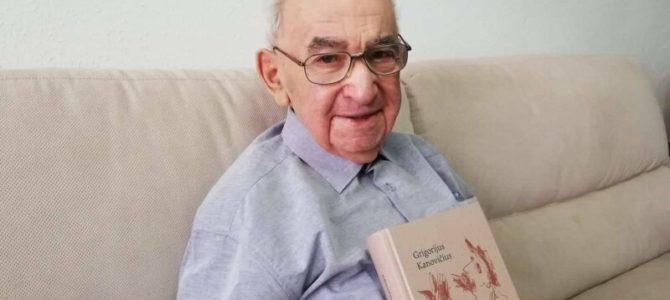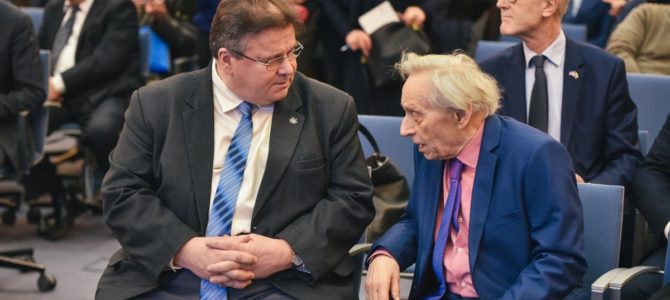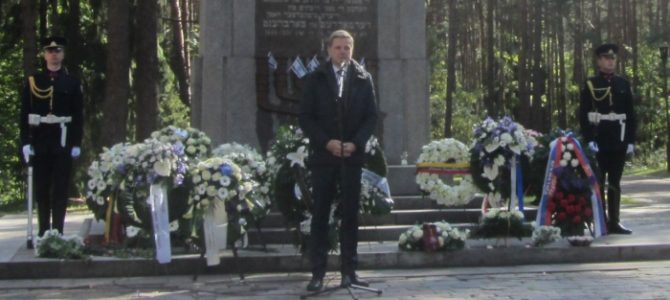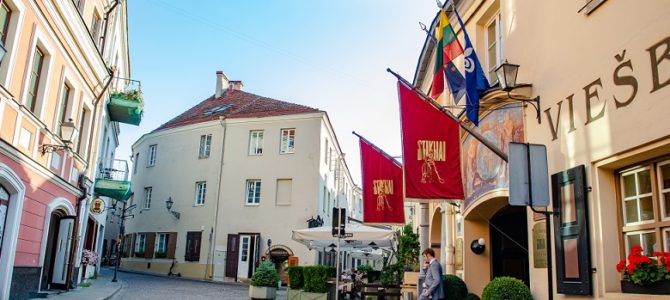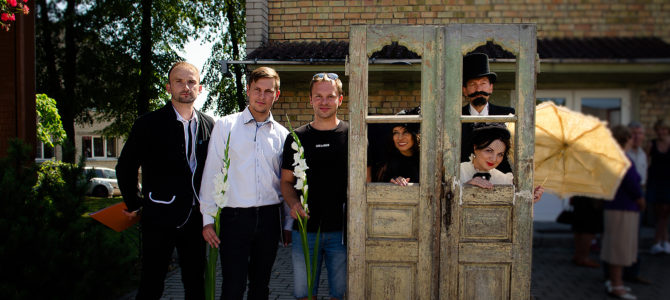I thank all of you who walked with the Lithuanian Jewish Community today along the route taken by 70,000 men, women and children 77 years ago.
While the bodies of the victims of Ponar, reduced to ashes, will not rise again, no attempts to burn the pages of history will liberate our fellow citizens from the guilt dwelling in the subconscious over the murder of the Jews, nor will it relieve the suffering of the experience of the Holocaust even of the generation which came after.
No actions will return the lives of the more than 200,000 people of Lithuania lost during the Holocaust while words, whether in Lithuanian or Yiddish, will only briefly return a glimmer of the crown of the Jerusalem of Lithuania.
The memory of the Holocaust, however, isn’t just filled with shame for one side and pain for another. Its memory awakens our conscience and our duty to the future: to remember and honor the dead, thus imparting some sense to the victims of senseless hatred, lessons written in innocent blood for humanity. As long as we’re alive we must insure through joint effort, testifying to the memory of the Holocaust victims, the tragedy of Ponar never recurs, and that it doesn’t become the object of new and error-filled forms of hatred.
As we recall the events of that era of pain, it’s just as important to remember those giants of the spirit. I don’t know how many times now here in Ponar I’ve talked about Liba Mednikienė, a heroine of Lithuania’s battles for freedom. Finally now, during the Year of the Vilna Gaon and the Year of Litvak History, a monument to her memory, to this Lithuanian patriot murdered at the hands of Lithuanians, has found a home in the town of her youth, Širvintos.
Today hope is reborn, listening to the words of the president and prime minister and watching the soldiers pay tribute to Lithuania’s Jewish victims of genocide, hope that our society and out state have matured, have reached a new stage in the dialogue between Jews and Lithuanians, devoted wholly to learning and recognizing historical justice. We have an history inherited and shared from the time of Vytautas the Great, and so I believe commemoration of the victims of the Holocaust and being an indivisible part of it will become, eventually, not a matter of just marking an event or opportunity, but an issue of civic dignity and our view of the world.
Thanks to all of you for being here today with us, the small Lithuanian Jewish Community, for blazing a path in remembering those who were innocent and were sentenced to death.
Faina Kukliansky
September 23, 2020
Ponar, Lithuania


